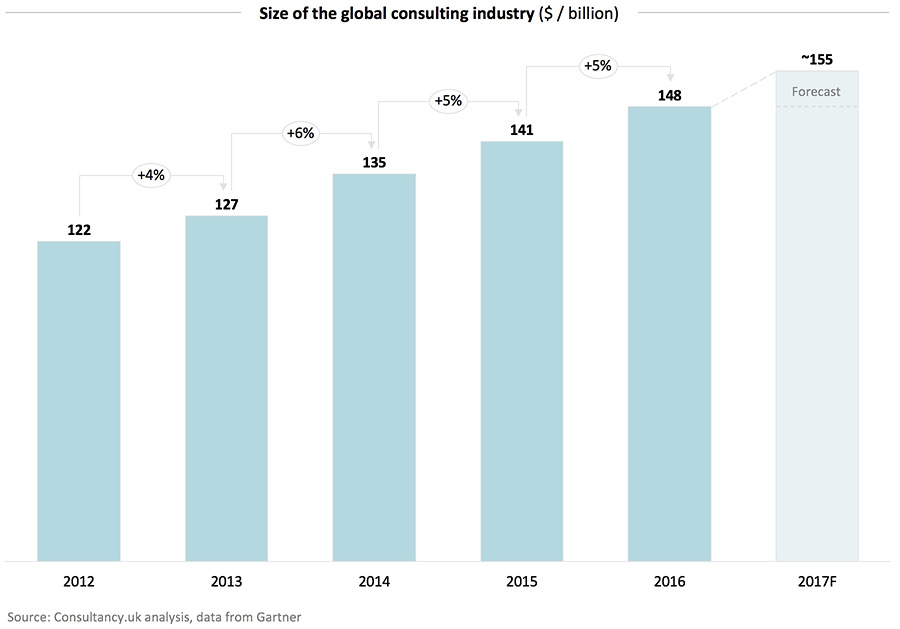
The Boston Consulting Group, an American multinational management consulting firm, was established in 1963. It is based in Boston, Massachusetts. It is part one of the "Big Three", which includes McKinsey & Company as well as Bain & Company. This article will cover the history of BCG, its renowned consulting skills and the many benefits that come with working at BCG. BCG's travel schedule, salary structure and benefits are all factors to consider if you're looking for a job at a highly rated company.
Bain rose up the ranks of BCG
Bruce Doolin Henderson was an ambitious, young engineer who had very little business experience when he joined BCG back in 1967. He quickly rose to the top and was known for his keen attention to detail. Bain rose to the rank of vice president and was responsible for one of four divisions which accounted for a large percentage of the firm's revenue. Bain came from a small business background and quickly rose in the ranks at BCG. He was considered the heir-apparent to Bill Henderson.
Bain, who graduated in 1959 from Vanderbilt University was employed by a steel-fabricating corporation. After six years at the firm, he raised funds through alumni and established Bain & Co. in 1973. Bain Capital was founded in 1984 by Bain. Bain's contributions are difficult to imagine without them. This article isn't meant to replace Bruce Henderson’s advice and contributions.

Bruce Henderson, Founder.
The Founder of Boston Consulting Group, Bruce Henderson, will use his insight and experience to create a new Institute. The Institute will aid organizations to develop new ideas, approaches, and solve business problems. It will bear Henderson's name. It will have a global focus and analyze the implications major trends. It will concentrate on the intersections of strategy and innovating. For example the Institute will research the impact globalization has on traditional industries like healthcare.
Bruce Doolin Henderson worked as a consultant for Arthur D. Little over his long career. His frustrations prompted him to approach the CEO of Boston Safe Deposit and Trust, one of the company's clients. Henderson was appointed to lead a new consulting unit within the bank. He was able conceive his ideas, which led to the formation of the Boston Consulting Group.
Travel schedule
BCG's typical travel schedule covers four days per week, Monday to Friday. Friday brings the firm back into office. On Friday, consultants spend time chatting with managers about how to make the most out of their weekends. After work, BCG consultants might meet up for happy hour with their colleagues. BCG consultants should expect to be on a strict travel schedule. But, Marriott also offers Platinum memberships for their employees. Although it may seem extreme, this schedule is very reasonable given the company’s dedication to training and developing.
The Boston Consulting Group is a global management consultancy firm that employs more than 12,000 people around the world. The firm has won multiple awards for employee satisfaction, and Fortune magazine recently named it one of the 100 Best Companies To Work For in 2016. The firm is seeking candidates with the right combination of drive, curiosity and collaboration. They have employed candidates in the past for flexible jobs including remote, part-time, and flexible schedules.

BCG has many benefits
BCG is proud of its diversity. Diverse employees contribute to innovative solutions. To achieve this diversity, people must feel included and be free to express themselves. BCG has a variety of programs that encourage employees to voice their opinions and create a sense community. Here are some examples.
The company also pays for the premiums of health insurance for employees. It also compensates consultants for their work in non-profit organizations. It also pays a large part of the travel expenses of their consultant. Some employees may need to travel to clients, or spend considerable time in meetings. While the work of a BCG consultant can be varied, there is no denying the fact that it requires hard work, dedication, creativity and hard work. However, many BCG employees find the flexibility of the work schedule appealing.
FAQ
What skills will I need to be a consultant?
Consultants should be able to communicate effectively and have excellent analytical skills. This is crucial because you might not be able to understand what you are doing when you work on complex projects. It is important to learn how to quickly solve problems and manage people.
Excellent communication skills are also essential. Most clients expect an answer within 24hrs. They assume that you won't respond if they don't hear from them within 24 hours. It's crucial to keep them informed and make sure they understand everything.
Do I need legal counsel?
Yes! Yes. Consultants can often create contracts with clients, without seeking legal advice. This can lead to issues down the road. For example, what happens to the contract if the client terminates it before the consultant has completed? What happens if your consultant doesn't follow the contract deadlines?
To avoid any potential problems, it is best to consult a lawyer.
How much do consultants make?
Although some consultants can make more than $100k annually, the majority of consultants earn between $25-$50k. The average consultant salary is $39,000 This includes hourly as well as salaried consultants.
Salary depends on the experience of the consultant, their location, industry, type and length of the contract (contractor or employee), as well as whether they have their own office or work remotely.
Why would a company employ a consultant to help them?
A consultant provides expert advice on how to improve business performance. Consultants are not here to sell products.
Consultants help companies make better business decisions through sound analysis and suggestions for improvement.
Consultants often work closely alongside senior management teams to help understand what they need to succeed.
They offer coaching and leadership training to help employees achieve their highest potential.
They may be able to advise businesses on ways to cut costs, improve efficiency, and streamline processes.
How long does a consultant take?
The amount of time needed depends on your industry and background. Most people start their career with only a few months to find work.
However, many consultants spend years honing their skills prior to finding work.
What type of contracts are available to consultants?
When consultants are hired, they sign standard employment agreements. These agreements define the terms of the agreement, including how long the consultant is expected to work for the client as well as what he/she should be paid.
Contracts will also outline the areas of expertise and compensation for the consultant. The agreement might state that the consultant will conduct training sessions, workshops or webinars.
Other times, the consultant simply agrees to complete specific tasks within a specified timeframe.
Consultants often sign independent contractor contracts in addition to their standard employment agreements. These agreements allow consultants to work independently while still receiving payment.
What can I anticipate from my consultant
You should hear back from your chosen consultant within a few days. They will ask you for information about your business, including the mission, goals, products, and budget. After receiving this information, they will prepare a proposal outlining their scope of work, estimated timeline, fees, deliverables and milestones.
If everything looks good, then the two parties will negotiate a written contract. The type of relationship between them (e.g. employer-employee or employer-independent contractor) will determine the terms of the contract.
If everything goes as planned, the consultant may begin to work immediately. S/he will have access to your internal documents and resources, and you'll have access to his/her skills and knowledge.
Don't assume that someone who is a consultant knows everything. It takes practice and hard work to become an expert in the field you are consulting. Don't expect your consultant know everything about your company.
Statistics
- So, if you help your clients increase their sales by 33%, then use a word like “revolution” instead of “increase.” (consultingsuccess.com)
- Over 62% of consultants were dissatisfied with their former jobs before starting their consulting business. (consultingsuccess.com)
- WHY choose me: Why your ideal client should choose you (ex: 10 years of experience and 6-week program has helped over 20 clients boost their sales by an average of 33% in 6 months). (consultingsuccess.com)
- My 10 years of experience and 6-step program have helped over 20 clients boost their sales by an average of 33% in 6 months. (consultingsuccess.com)
- According to IBISWorld, revenues in the consulting industry will exceed $261 billion in 2020. (nerdwallet.com)
External Links
How To
How To Start A Consultancy Company, And What Should I Do First?
A consulting business is a great way of making money online. You don’t need to have business experience or invest capital. It is possible to create a website to launch your consulting business. Once you have a website built, you can start using social media platforms such Instagram and Pinterest to spread the word about you services.
These tools will allow you to create a marketing plan which includes:
-
Creating content (blogs)
-
Contacts are essential for building relationships
-
Generating leads (lead generation forms)
-
Selling products online
Once you've developed your marketing strategy, you'll need to find clients who will pay for your services. Some people prefer to go through networking groups and events, while others prefer to use online methods such as Craigslist, Kijiji, etc. The decision is up to each individual.
After you have found new clients, it's important to discuss terms and payment options. This could include hourly fees, retainer agreements, flat fee contracts, etc. You need to be clear about what you expect of a client before they accept you as a client.
Hourly agreements are the most commonly used contract type for consultancy service. You agree to offer certain services at a fixed fee each month or every week. Based on the service you provide, you might be able to negotiate a discount based on the length of your contract. Make sure you understand what you are signing when you accept a contract.
Next, create invoices. Send them to your clients. Invoicing is one thing that looks simple until it's actually done. There are many different ways to invoice your clients, depending on your preferences. You can choose to have your invoices sent directly to your clients or to print them and send them. Whatever method you choose, make sure it works for you!
After you've finished creating invoices, you'll want to collect payments. PayPal is preferred by most because it is easy-to-use and offers multiple payment options. There are many other payment options, such as Square Cash, Square Cash and Google Wallet.
Once you are ready to start collecting payments, it is time to open bank accounts. Separate savings and checking accounts will allow you to track your income and expenses independently. Automated transfers into your bank account are a great way to pay bills.
It may seem overwhelming to start a consultancy, but once it is done correctly, it becomes second-nature. This blog post will provide more information about starting your own consultancy business.
It's a great way for extra income without having to worry about hiring employees. Remote consultants don't need to be tied down by office politics or work long hours. Remote employees have more flexibility because they are not bound by regular work hours.